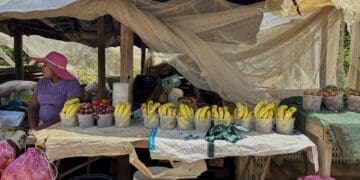South Africa’s SMEs began 2025 with cautious optimism, however, according to new data from Business Partners Limited’s SME Confidence Index, confidence is eroding across several key parameters. From persistent financial barriers and cash flow issues to currency volatility and regulatory limitations, entrepreneurs continue to face numerous challenges.
However, the Index demonstrates that the SME environment is resilient and cautiously optimistic, driven by the sector’s vital role as a driver of innovation, growth, and job creation.
Around 37.5% of SMEs, or more than a third, reported that in the first quarter of 2025, currency fluctuations had a direct impact on them, according to the report.
Many small firms reported more difficulties managing imports, pricing strategies, and repayment schedules as a result of the rand’s pressure from changes in global commerce and the uncertainty surrounding South Africa’s national budget approval.
Business Partners Limited Executive General Manager, David Morobe, said the data underscores the uneven terrain SMEs are navigating.
“SMEs thrive when there’s stability in the broader economy, as this creates confidence and predictability,” he explained. “But rand volatility, shifting global trade patterns, and delays in finalising the national budget have only added more uncertainty for business owners who are already juggling day-to-day survival.”
Access to funding is still a major obstacle. According to the Index, a lot of SMEs still have trouble with late customer payments, which limits cash flow and makes it more difficult to obtain working capital. Respondents listed these financial constraints as one of the main growth barriers, which were exacerbated by regulatory red tape.
However, SMEs continue to play a key role in tackling South Africa’s high unemployment rates. Millions of South Africans are employed in this industry, which also makes a substantial contribution to regional economic activity. Growth will be limited, however, unless certain measures are taken to increase financial accessibility, lessen administrative roadblocks, and establish a stable business environment.
Morobe elaborated that responsibility for change cannot rest with the government alone. He said stronger collaboration between public institutions, corporate South Africa, and the SME sector itself is necessary to unlock real progress. “The SME sector is resilient, but resilience has its limits,” he noted. “To sustain and scale businesses, we need a collective effort. Government can ease the regulatory environment, corporates can pay suppliers faster, and financial institutions can tailor funding solutions that meet the realities of small business operations.
The study also revealed that many SME owners are still cautiously hopeful about the long run, even though confidence levels are lower than they were in late 2024. The potential of technology-driven business models, the rising demand for domestic goods and services locally, and prospects in industries like digital solutions and renewable energy all support this perspective.
According to the research, SMEs lack an enabling environment rather than ideas or enthusiasm. The industry may possibly emerge stronger in the upcoming months if legislators, investors, and corporations respond to the call for cooperation.
Supporting the confidence of SMEs is essential to enabling the nation’s wider recovery and future expansion, as they continue to be one of the most significant economic indicators in South Africa.
sipho@vutivibusiness.co.za































































